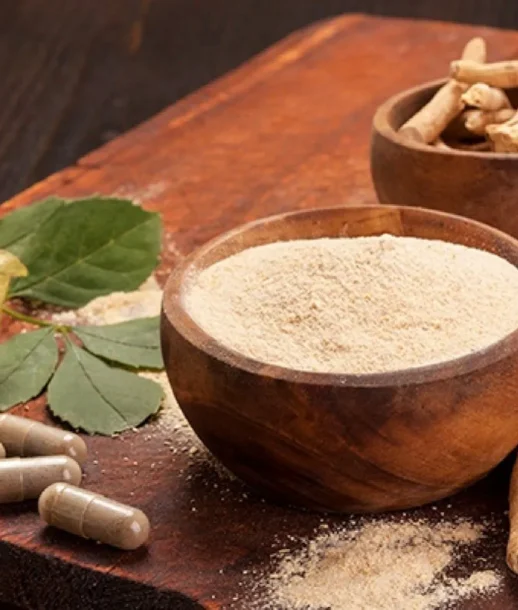Ashwagandha is an adaptogenic herb, which means it helps the body adapt to stress. It is also known as Indian ginseng, winter cherry, or Indian winter cherry. It is a small shrub that is native to India, the Middle East, and parts of Africa. The roots and berries of the ashwagandha plant are used to make medicine.
Ashwagandha has been used in Ayurvedic medicine for thousands of years to treat a variety of conditions, including stress, anxiety, fatigue, insomnia, and sexual dysfunction. In recent years, there has been growing interest in the po- tential health benefits of ashwagandha.
Benefits of ashwagandha include:
- Reducing stress and anxiety
- Improving sleep quality
- Boosting energy levels
- Reducing fatigue
- Improving cognitive function
- Boosting the immune system
- Reducing inflammation
- Improving athletic performance
- Increasing muscle mass
- Improving fertility in men
Ashwagandha is a small, evergreen shrub that grows to about 2 feet tall. It has dark green leaves and small, yellow flowers. The roots and berries of the plant are used to make medicine.
Ashwagandha has been used in Ayurvedic medicine for thousands of years. Ayurvedic medicine is a traditional system of medicine from India. It is based on the belief that the body has three doshas, or energies: vata, pitta, and kapha. Ashwagandha is believed to balance the vata dosha, which is associated with stress, anxiety, and fatigue.
There is some scientific evidence to support the health benefits of ashwagand- ha. For example, studies have shown that ashwagandha can help to reduce stress, anxiety, and fatigue. It may also help to improve sleep quality, boost the immune system, and reduce inflammation.
Chemical constituents:
- Withanolides: These are the most active compounds in ashwagandha. They have adaptogenic properties, which means they help the body adapt to stress. Withanolides also have anti-inflammatory, antioxidant, and anti-cancer properties.
- Alkaloids: These are compounds that have stimulant and sedative proper- ties. The alkaloids in ashwagandha are thought to be responsible for its adaptogenic and anti-stress effects.
- Saponins: These are compounds that have anti-inflammatory and antioxi- dant properties. They are also thought to be responsible for the adapto- genic effects of ashwagandha.
- Flavonoids: These are compounds that have antioxidant and anti-cancer properties. They are also thought to be responsible for the adaptogenic effects of ashwagandha.
- Other constituents: Ashwagandha also contains other compounds, such as steroidal lactones, glycosides, and amino acids. These compounds may also contribute to the health benefits of ashwagandha.
The exact chemical composition of ashwagandha can vary depending on the plant’s growing conditions, the part of the plant that is used, and the extraction method. However, the withanolides are the most consistently present com- pounds in ashwagandha.

